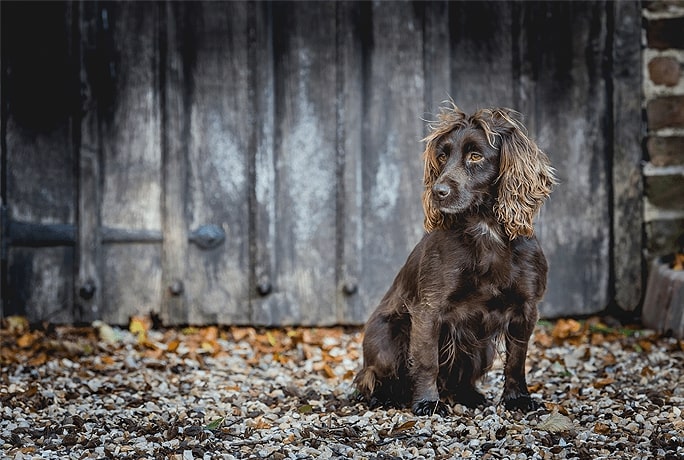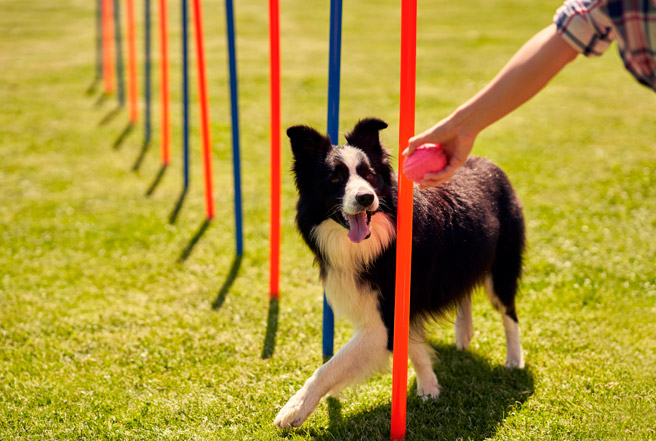Will the cold weather effect my dog’s appetite?
Written by Zoe Russell, BSc (Hons)
Nutrition Officer, Skinner’s

The temperature is dropping, the evenings are getting shorter and the weather is, well… wet. These environmental changes will certainly have an effect on us, influencing our routines, moods and behaviour, but how do these changes (in particular the cold weather) effect our dogs?
Working through the winter
As the temperature starts to drop, many dogs will use a large amount of energy simply to keep warm, especially if they are regularly working in cold and wet conditions or kennelled outside. Instinctively, dogs may consume more calories during the colder months to make up for this. However, this doesn’t necessarily mean dogs need to eat a higher volume of food, instead they may opt for more energy-dense foods, higher in key nutrients such as fat. Dietary fat can provide a good source of energy, while stored fat can be a great insulator against the cold. This doesn’t mean working dogs should be carrying excess weight in the form of fat, but a “good covering” can help combat the effects of cold and wet conditions.
Taking it easy through the winter
Not all dogs spend the winter months working hard out in the field. For some, the winter months are an excuse to spend less time exercising and more time resting. For these dogs, you may find their appetite remains unchanged, however their calorific requirements will change, as less energy output means less energy required in the diet. If there is excess energy in the diet, this can contribute towards unwanted weight gain; therefore, if your dog is taking it easy this winter, it might be an idea to take it easy on their meal portions!
‘Tis the season to be hungry
Although dogs need to stay fuelled during the colder months, it’s equally important they don’t over-indulge! Many of us know the feeling of excessive snacking on rainy, dark, cold days, especially around Christmas when our homes start to fill up with delicious treats. During these times we may notice our dogs looking hungrier, yearning for a piece of cheese or turkey off the table. However, it’s important you ignore the puppy-dog eyes and try to restrict the number of treats and titbits your dog gets. Afterall, too many additional treats can contribute towards unwanted weight gain or risk over-shooting the nutritional balance of their diet. If your dog is a healthy weight and condition, then it’s likely they are getting all the nutrients they need from their food, especially if they are fed on a balanced and complete diet like Skinner’s.
Watch that weight!
The golden rule is “measure, monitor, manage”. A simple, three-point guide to help your dog stay fit and healthy by regularly weighing them, assessing any changes and adjusting their feed intake and exercise accordingly. This is especially important during the working season, as dogs working several days a week may start to drop weight, more so as the weather becomes colder and wetter. On the other hand, dogs who are doing less exercise during the winter will have the opposite problem- excess weight! Therefore, it’s important to keep an eye on their weight and body condition, so you can make appropriate adjustments.
If you’re unsure how much you should be feeding your dog, try our free online feeding guide to receive a personalised feeding recommendation for your four-legged friend.
Contact us
If you would like any further information or feeding advice, then please contact our nutrition team at nutritionsupport@skinners.co.uk and we would be more than happy to help.



